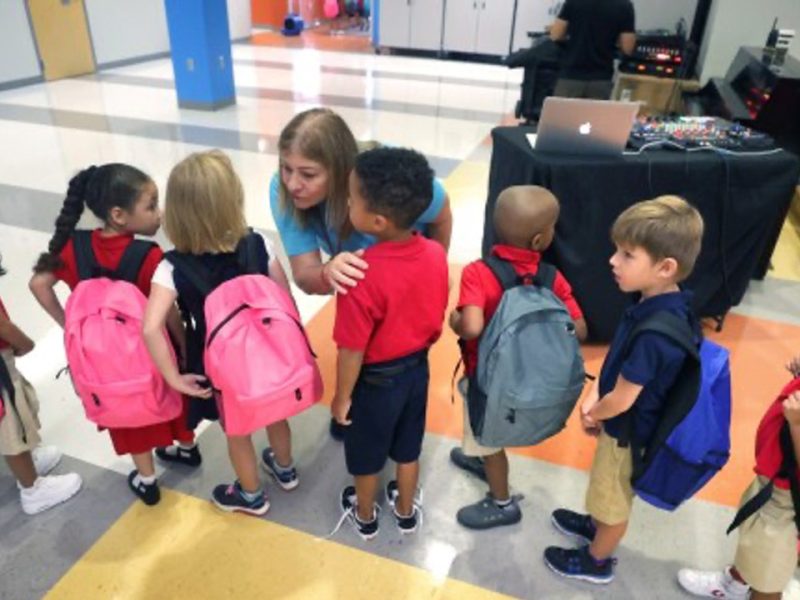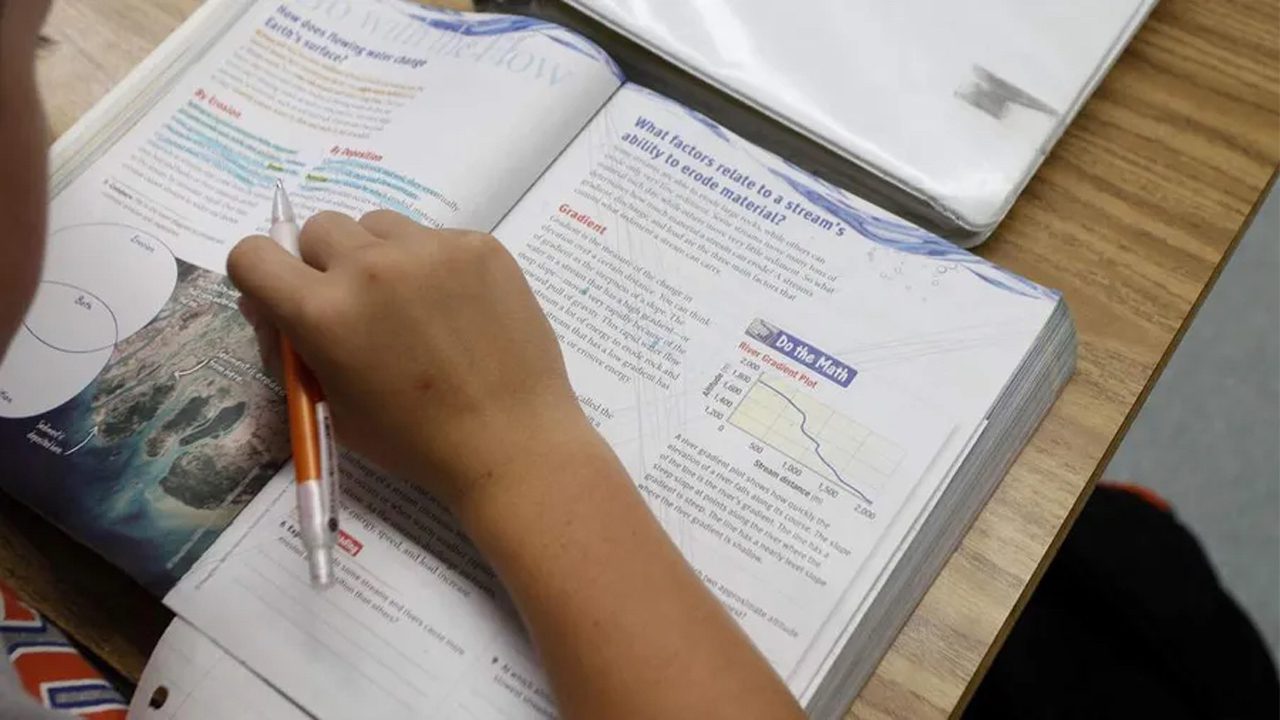
Florida rejects, amends many social studies textbooks
Among the changes: A passage on Black Lives Matter and George Floyd was removed.
Tampa Bay Times | By Marlene Sokol | May 9, 2023
The Florida Department of Education announced Tuesday it has rejected 35% of the social studies textbooks submitted by publishers, a year after a messy math book adoption cycle.
The social studies books were expected to be more contentious than the math ones, as their topics are potentially more divisive in the current political climate. Florida has banned the teaching of several ideas, including the notion that “equality of treatment under the law is not a sufficient condition to achieve justice.” Critics argue that the state is attempting to whitewash history.
Officials offered several examples of passages they rejected, including one headlined “New Calls for Social Justice” in a middle school textbook. The passage discussed the start of the Black Lives Matter movement in 2013 and the murder of George Floyd by Minneapolis police in 2020. It was removed from the book, according to the department.
Also stricken was a mention of people kneeling during the national anthem in an elementary school textbook.
“The political indoctrination of children through the K-12 public education system is a very real and prolific problem in this country,” tweeted Bryan Griffin, press secretary for Gov. Ron DeSantis. He added that problematic passages were “All CAUGHT & all FIXED under @GovRonDeSantis’ watch.”
Others pushed back against that view.
“There’s so many emotions, but I guess immediately it’s fear,” Hillsborough School Board member Jessica Vaughn said. “I’m afraid of the pattern of erasing or trying to rewrite history, because to me this is right out of the playbook of fascism.”
School districts have long been waiting for this list to arrive. Some, including Pasco County, have completed reviews of proposed titles but waited to act until seeing what the state approves.
Others, such as Pinellas County, decided to wait until next year to consider new social studies textbooks.
None want to find themselves in the same situation as a year ago. That’s when they began purchasing new math books, only to learn that the state had rejected many of them over politics.
Confusion ensued, and public records requests ultimately revealed that most of the state’s reviewers did not find evidence that the math books were “woke,” as the state had alleged.
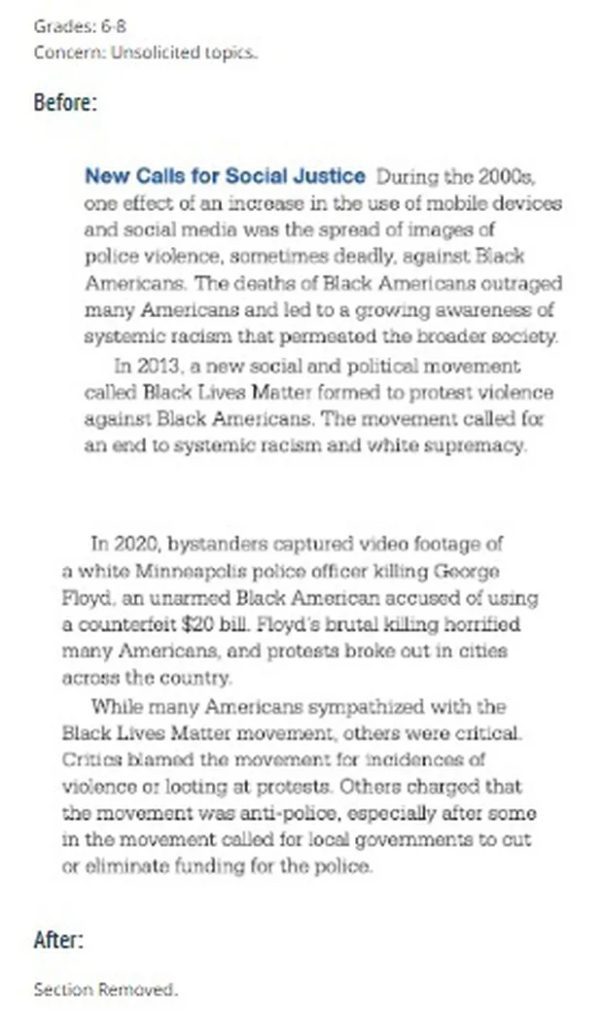
Since that time, the majority of math books that did not make the cut for that announcement have been adopted. But the state had made clear its opposition to certain ideas in textbooks.
It furthered that perspective when it asked for social studies textbook bids. The specifications clearly stated that “Critical Race Theory (CRT) and its Applied Principles and Social Emotional Learning” would not be allowed in the materials, offering a list of topics that would be considered unacceptable.
Those included ideas such as white privilege. The state describes it as the notion that “An individual, by virtue of his or her race, color, sex, or national origin, is inherently racist, sexist, or oppressive, whether consciously or unconsciously.”
Critical race theory is a college-level area of study advancing the idea that racism is embedded in American institutions, but it also has come be a catchall term for many issues involving race.
Social-emotional learning is a strategy that aims to help students manage their emotions and develop empathy, among other traits.
The state announced Tuesday that it accepted 65% of the 101 books that were under consideration.
But for more than two-thirds of those that were accepted, the publishers had to make adjustments before they obtained approval.
For example: An elementary school lesson about symbols that represent the United States encouraged parents to “talk to your child about the National Anthem,” and “use this as an opportunity to talk about why some citizens are choosing to ‘Take a Knee’ to protest police brutality and racism.”
That paragraph was stricken from the book.
In a middle school text, the state asked the publisher to rewrite and change a section about socialism.
The original text said socialism “keeps things nice and even and without unnecessary waste.” It also said socialist societies “may promote greater equality among people while still providing a fully functioning government-supervised economy.”
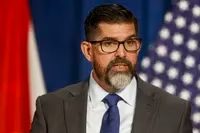
The revised text cites China during the Maoist era and Cuba as examples of planned economies. It goes on to say that critics say planned economies “have slow development and fewer technological advances” with little human incentive.
In a statement Tuesday, Florida Commissioner of Education Manny Diaz Jr. said that “to uphold our exceptional standards, we must ensure our students and teachers have the highest quality materials available — materials that focus on historical facts and are free from inaccuracies or ideological rhetoric.”
Vaughn, the Hillsborough school board member, said the information that was excised is important history. As a child in the Hillsborough schools, she said, she was not taught about issues such as segregation and redlining, and became angry when she learned about them as an adult.
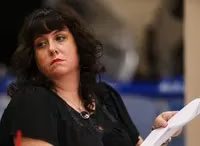
Yvette Lewis, president of the Hillsborough branch of the NAACP, said, “it whitewashes our history. It doesn’t allow the children an opportunity to actually learn the truth about African American history. There are some teachers now that are afraid of certain words. Like the word diversity. They’re making it seem like African American history is a bad thing to learn and understand.”
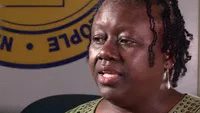
Controversy about not only textbooks, but also library books with sexual content, has galvanized parent groups across the political spectrum.
Raegan Miller of the Florida Freedom To Read Project said of the textbook rejections: “They’re not considering the lived experiences of our students. And they aren’t considering the needs of a diverse student body.”
Miller said her organization will respond by encouraging critics to speak out to lawmakers and school board members. With two children in the Pinellas County schools, she said. “I want them to have access to information to understand the world and understand other people’s views, whether I agree with them or not.”



